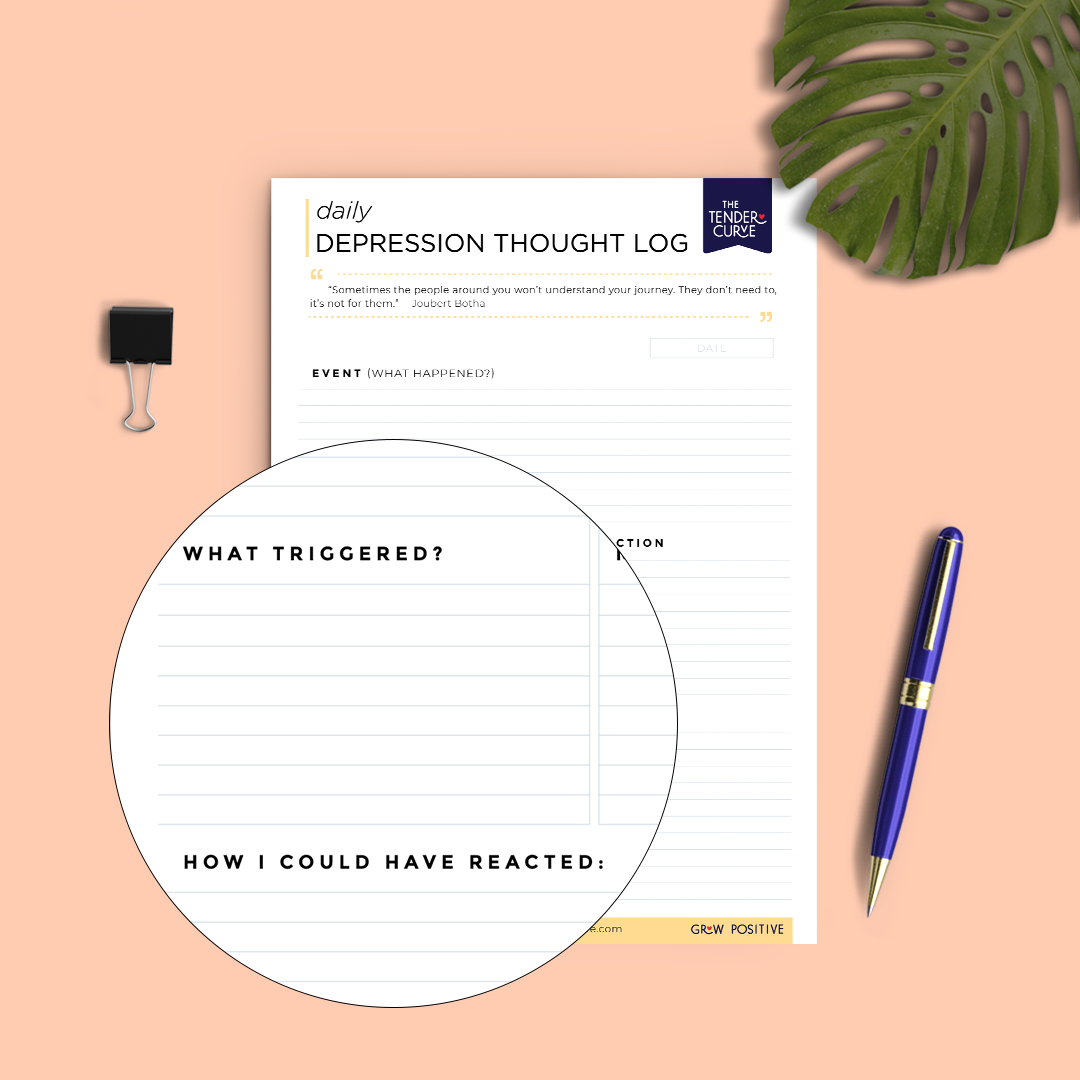Depression as Disability

Depression as a topic might not have been widely discussed in the past but the times have changed now. People are coming to terms with it and are trying to be more open about it. Especially in a traditional society like ours where it has been considered a taboo, we are seeing a profound development. So, let me shed a little bit more light upon this word.
Depression is a mental disorder which is characterized by persistently low mood, decreased interest in previously enjoyable activities causing significant impairment in daily life functioning. As soon as we use the word ‘mental’ people tend to think – “ok? This means it’s all imaginary! There is nothing wrong; there is nothing to worry about. You will get well soon!”
Well, unfortunately it doesn’t depend on the person’s mood and his decisions to be well or ill. Let me tell you, it is as real as any other physical illness and is caused by a combination of biological, psychological and social factors.
Depression is the most common mental illness affecting 264 million people globally of all age groups. The disability due to depression exceeds disability due to all forms of cancer and diabetes combined or even heart diseases. Close to 8 lakh people die of suicide every year and about 50% of it is caused by depression. Even after depression been declared as a leading cause of disability, research shows 76% and 85% of people in lower and middle-income countries respectively receive no treatment for their disorder. One reason for this is the impending stigma that is associated with mental illnesses which prevent people from seeking the help they need, for the fear of being judged. The only way out of this is by creating awareness around it. Let me explain depression with the help of an illustration.
In this illustration, I am going to talk about an incredible video by WHO (World Health Organisation) titled – ‘I had a Black dog, his name is depression’. In this video the person illustrates his symptoms in the following manner; he has compared depression with a black dog. He further shares how, whenever a Black dog (depression) shows up, life seems to slow down and the feeling of emptiness devours us. He could see the world only through the eyes of the black dog. While the rest of the world seems to be enjoying all the activities that usually was interesting to him, they suddenly don’t seem interesting anymore. It ruins his appetite, causes memory loss and affects his attention. While waking up, getting ready and going out is not a very big task for the rest of the world, but it seems difficult for this man with the big black dog looming over him.
He also illustrates how difficult it is to live with his Black dog as he is afraid that people would find out and judge him for the same. Hence to get rid of these judgements, he has to spend a vast amount of energy in covering his black dog and try to keep up an emotional lie showing everyone else that he is happy and that life is good. This black dog would often make him feel negative things and because of which he often ends up saying hurtful things to his loved ones. His black dog wouldn’t let him sleep at night and fill his head with gloomy thinking, making him more exhausted the next day. And this goes on and on, day after day, month after month, until he seeks the help he needs which helps him get rid of this uninvited black dog. In conclusion, just like a real dog, it needs to be embraced, understood, taught new tricks and ultimately brought to heel.
Imagine how difficult it is for such a person to continue his daily activities which seems to come so naturally to the rest of us. With this story, I hope we have a better understanding about this disorder and how disabling it can be.


Now, the good news is that treatment is being made more widely available; from medication to psychotherapy.
Let’s understand a little bit about what they are:
Psychotherapy
Psychotherapy is more commonly known as talk therapy or counselling. It is the use of psychological methods, particularly a structured interaction between a therapist and an individual to help this individual bring a change in his or her thoughts and problem causing behavior. Psychotherapy for depression is mostly carried out by a trained therapist or a clinical psychologist.
Pharmacotherapy
Pharmacotherapy for medication also plays a significant role in the treatment of depression. These medicines are prescribed by psychiatrists (MBBS doctors who specialize in mental illnesses). It is found that a combination of psychotherapy and pharmacotherapy serves the best in treatment of depression.
Alternative Therapies
Along with the main line treatment as described above, self-help groups, exercise, healthy diet and self-care can be quite beneficial for the treatment of depression.
I would like to conclude by stressing on the fact that, even if we are not the ones suffering we cannot keep the uncaring attitude anymore. As depression grows all over the world at such a fast pace, we need to be ready to provide our help in whatever ways we can. As there are people around us who are suffering, our role should be to be more supportive of them, to be less stigmatized and help them with the care that they need. And, at times the needed care can be just offering them a listening ear whenever they feel comfortable enough to share their burden. Let’s hold our hands together and stand alongside the people who are standing in this fight against depression.

Clinical Psychologist
Anuna Bordoloi is a licensed Clinical Psychologist under Rehabilitation Council of India. She has been working in the mental health field since 2012. She is currently working as a Consultant Clinical Psychologist in the Department of Mental Health and Behavioral Sciences at Fortis Healthcare. She is a skilled professional in the areas of child and adult psychotherapy and other mental health issues, like rehabilitation, de-addiction, relationship problems and psychological assessments. Apart from her clinical contributions, her interest lies in conducting workshops and seminars on mental health and creating awareness in the society. She also has been doing interviews and panel discussions on burning mental health issues with different media platforms on burning mental health topics across the country.
FREE DOWNLOADS
Related Blog Posts
Understanding Happiness – The Secret to a Happy Healthy Life
Take a moment and remember the last time you felt like you had a purpose to live, your internal being was satisfied to be in the moment, and that moment could not be replaced by anything. Happiness is nothing else but a state of satisfaction and contentment. Happiness...
Men and Mental Health – Men have feelings too
For anyone having any illnesses, especially related to mental health, talking to anyone about it can seem extremely difficult be it even with a mental health professional.






0 Comments